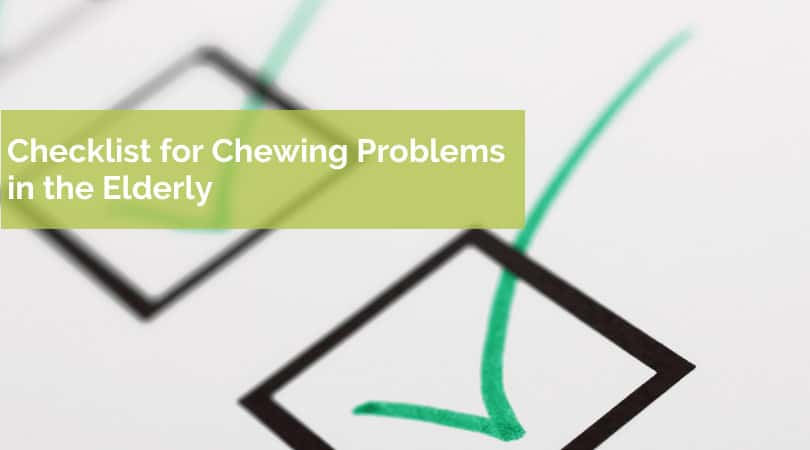
Chewing and swallowing difficulties will impact 1 out of every 25 adults in the United States.
Luckily, there is a lot that can be done to help increase meal success, reduce the risk of choking, and support adequate calorie and protein intake for the elderly.
Here is a checklist for what you can do to help with common chewing and swallowing problems:
Work with a professional. A speech therapist is the best person to assess difficulties with chewing and swallowing and provide tips to help improve function.
- See your dentist. Sometimes poor fitting dentures or pain can be an underlying cause of chewing problems, a dentist can help address these concerns.
- Exercise chewing and swallowing muscles. Exercises can help improve function and re-stimulate swallowing reflex nerves.
- Eat sitting up. Always eat while sitting at a 90 degree angle.
- Modify the texture of your diet. Chop food into smaller pieces or choose softer foods that are easier to swallow. Focus on selecting easy to chew foods for the elderly.
- Avoid foods that make you choke or gag. Thin liquids, tough meats or sticky foods, like nut butters can be problematic for some people.
- Chew your food thoroughly. Chewing is one of the best ways to help breakdown food so it can move smoothly through the digestive tract.
- Consider medical intervention. Surgery, esophageal dilation or certain medications can help improve swallowing issues.
With a few simple adjustments and working closely with a speech therapist, you can continue to enjoy your food and lower your risk of chewing or swallowing problems.
References:
- Adult Dysphagia. Accessed September 8, 2021. https://www.asha.org/practice-portal/clinical-topics/adult-dysphagia/
Latest posts by Ana Reisdorf, RD (see all)
- Chicken, Hummus and Veggie Wrap - February 17, 2023
- Hidden Veggie Chocolate Protein Shake - February 17, 2023
- Rice Flour Chips with Green Goddess Yogurt Dip - January 18, 2023





